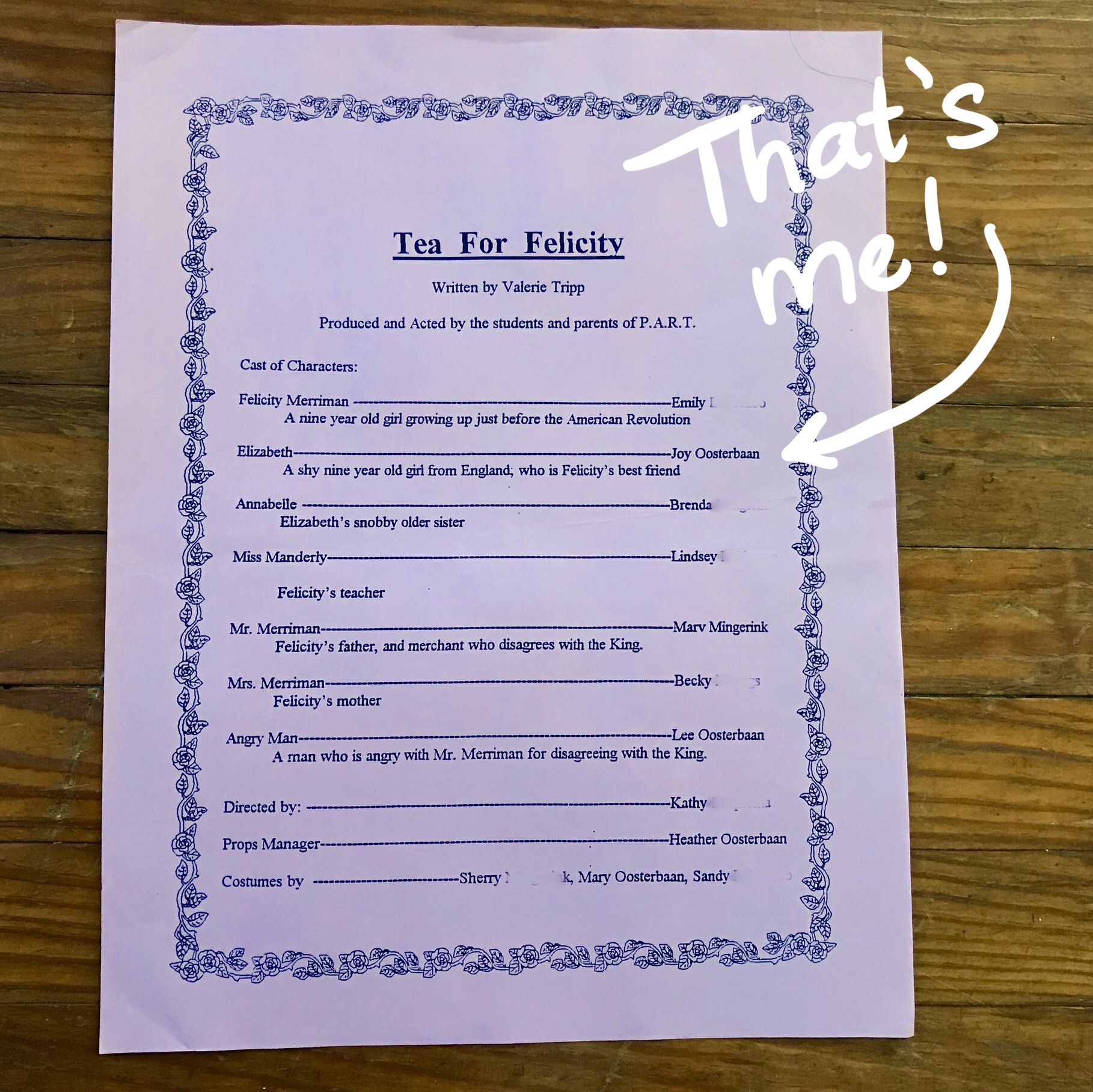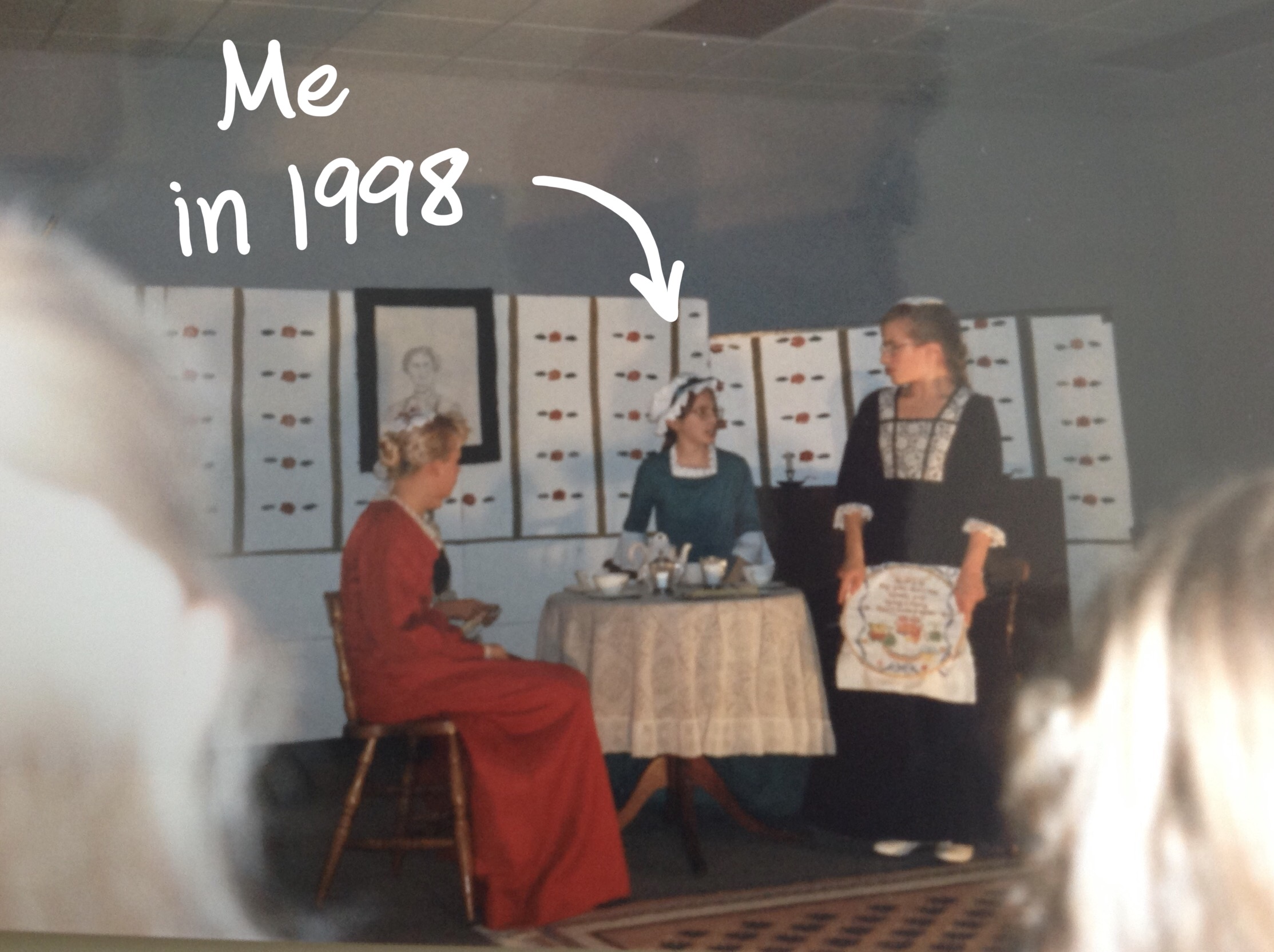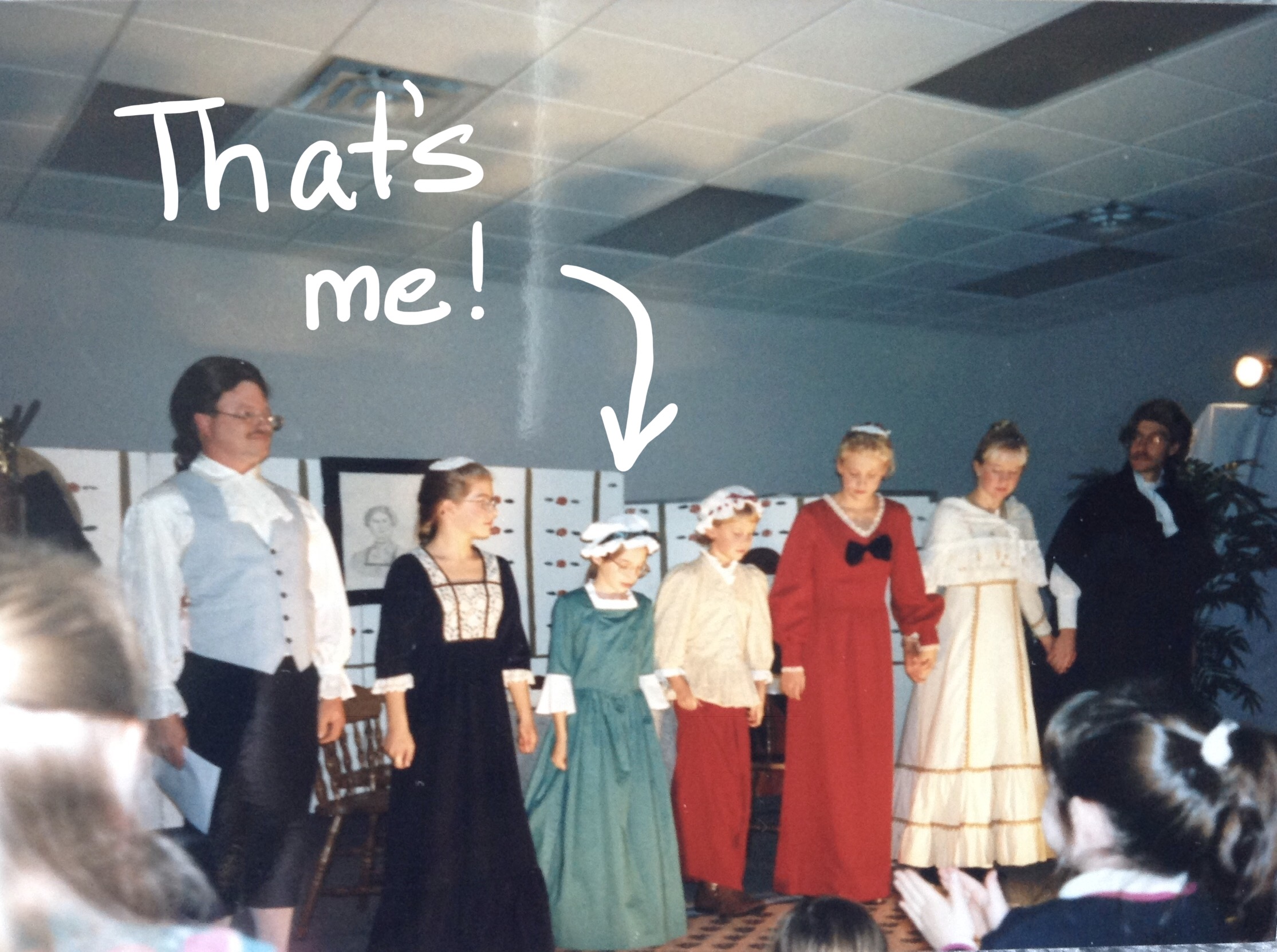When I was a kid, I participated in a play called “Tea For Felicity.”
I was a shy, introverted kid. I wasn’t exactly “actress material”.
However, I did want to be part of this play.
I auditioned, and somehow won the part of Felicity’s best friend.

My mother sewed me a Colonial era gown, complete with gathered sleeves and a white bonnet. I practiced and memorized my lines. I attended rehearsals, and helped paint the sets.
There was one problem.
I didn’t speak loudly enough onstage for my lines to be easily heard easily from the audience’s perspective. The play director asked me to speak out more. My mother coached me at home, letting me know I still wasn’t speaking loud enough. When I tried, I could deliver a louder rendition upon being asked. But the next time I read a line, I reverted to my normal volume.

Why couldn’t I seem to consistently project my voice?
I don’t think I understood how important it was for me to speak out. In other words, I wasn’t motivated enough to make sure I consistently projected my voice when I spoke onstage.
I know, I was just a kid. Nevertheless, I think I was at the time perfectly capable of making that change had I really wanted to.

Does this at all sound like how piano lessons go with students at times? We can beg and cajole students to make a change in how they play, but the change they make might be only temporary. And it’s not that the students have ill intentions or prefer to ignore us teachers. It seems like they perhaps don’t seem to want to make the effort.
How do students become motivated enough to make and sustain lasting change?
Until my younger self could reach the point where *I* wanted to be more easily heard onstage, I no doubt would continue delivering my lines at my usual volume.
What would have made a difference for my younger self when it came to playing my role in “Tea For Felicity”? What would have motivated me to make a lasting improvement to the way I delivered my lines?
It’s hard to say what would have actually made a difference back then, but here are a few ideas.
- Perhaps if I had more clearly seen for myself the problem. For example, maybe it would have helped to see and hear myself onstage in a video (much more easily accomplished with today’s technology than it was back then!).
- Perhaps if I had been more personally invested in the self-improvement process. For example, if I had been asked for my own ideas about how to learn to project my voice.
- Perhaps if I had the help of someone with expertise in teaching voice projection so I could experience consistent success, gain experience, and feel like I knew how to do it right. For example, I could have been asked to deliver my lines TOO loudly a few times and then tone it down a little, in order to find just the right volume. I’m sure an expert would have other great tricks.
The main lesson here for us as teachers is to — instead of focusing on making other people do things — focus on helping others WANT to do things. The question to ask ourselves as teachers is: How can we help students WANT to make a given change in themselves?
Change usually occurs after a person reaches a turning point — a threshold where the person experiences a realization or a shift in perspective. The teaching process involves instigating that sort of perspective shift. When students experience a shift in how they see themselves and their own possibilities, then they will spur themselves towards making a change.

We can’t force lasting change in those around us. However, we can inspire them, and help them envision their future selves upon making a change. We can help them see the problem and imagine how great the impact could be upon implementing the change. We can help others see how attainable it would be, especially with help and support, for them to make the change.
My lines might have been rather difficult to hear during “Tea For Felicity”, but the play was a marvelous experience. I have nothing but fond memories of it all.
Sometimes, the timing just isn’t right or the right kind of motivation isn’t there. But sometimes, we teachers are lucky enough to strike just the right chord with our students and help them make great strides in their improvement. We can only “keep on keeping on” and continue doing our best to understand our students and what motivates them!



I find that recording/videotaping is a huge motivator. One of my most useful experiences in college was when I had to watch a videotape of myself teaching a class. It was NOT a good experience–not at first, anyway! There was so much that I didn’t like about my body language (caused by nervousness), the softness of my voice, etc. But because I could clearly see what wasn’t working, I was much more motivated to fix it–plus, I had a much better idea of just what needed to be fixed.
Also, I once had a piano teacher use her phone to make a video of my hands while I was playing scales. I was immediately able to see where my technique was less than ideal, where and I hadn’t been able to see it at all while playing–even though I was looking right at my hands the whole time!
Agreed, recording/videotaping is so helpful! It helps us clearly see how we are doing, and yes, can motivate us to make a change when we realize we aren’t doing what we thought we were!! Thanks for your comment, Waterfall.
Thanks for sharing this great personal example, Joy. I can relate to the introverted, shy, but-still-want-to-act personality. While I was reading your post, I began to think of questions I could ask my students to help with their motivation to change. Thanks for the advice. Also, I usually don’t have my phone in my teaching studio because I don’t want to be interrupted, but now I want to keep it handy so I can quickly record/videotape what they’re doing/playing.
PS – I enjoy reading your blog posts even if I don’t comment. 🙂 Keep up the great work you’re doing!
Thanks so much for your comment, Denise. I’m so happy my article helped spark some ideas for great teaching questions to ask your students to help motivate them! And yes, I keep my phone handy when I’m teaching mainly for being able to videotape quickly and easily. Students do enjoy the process of creating quick “before” and “after” videos. 🙂